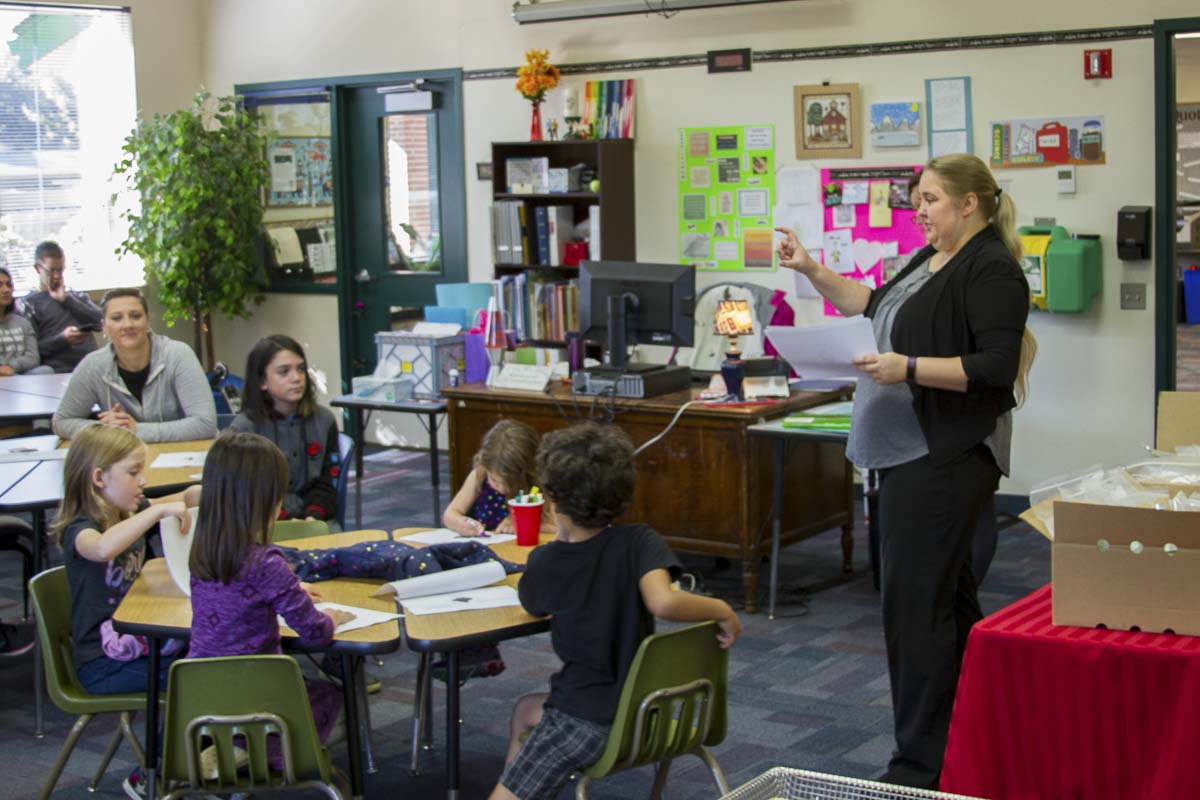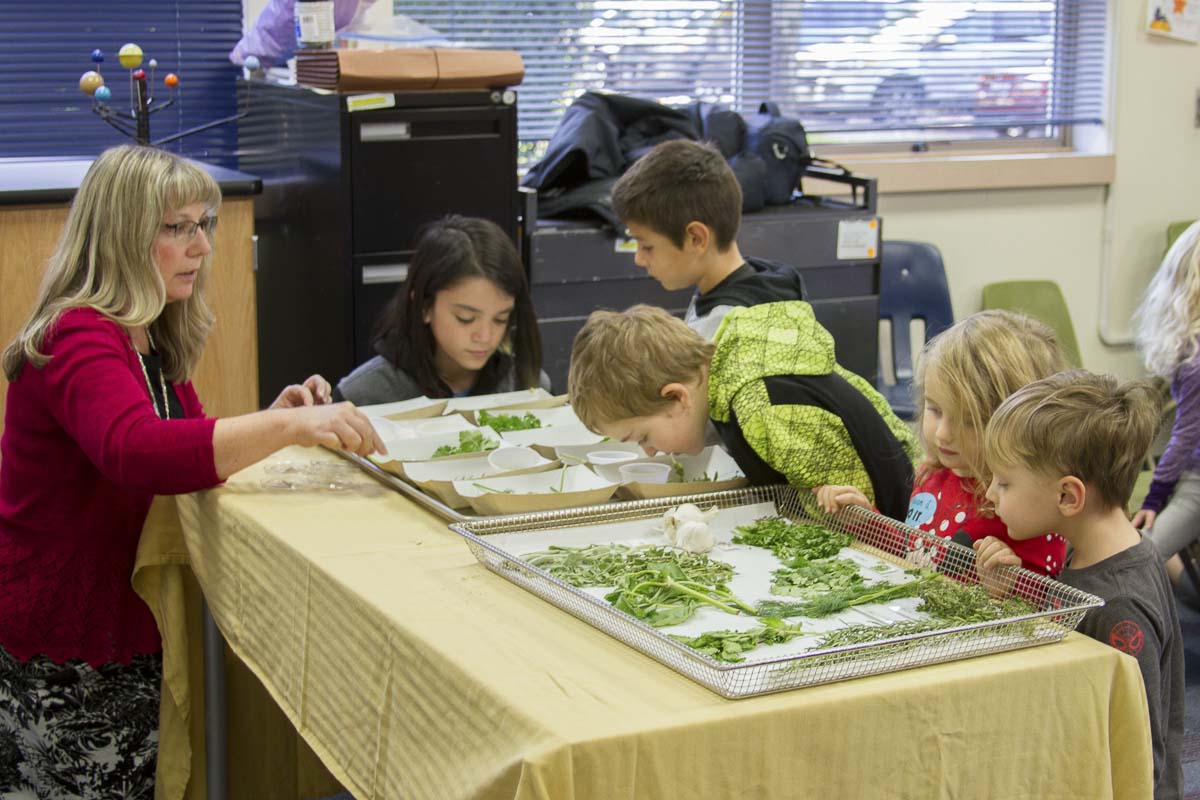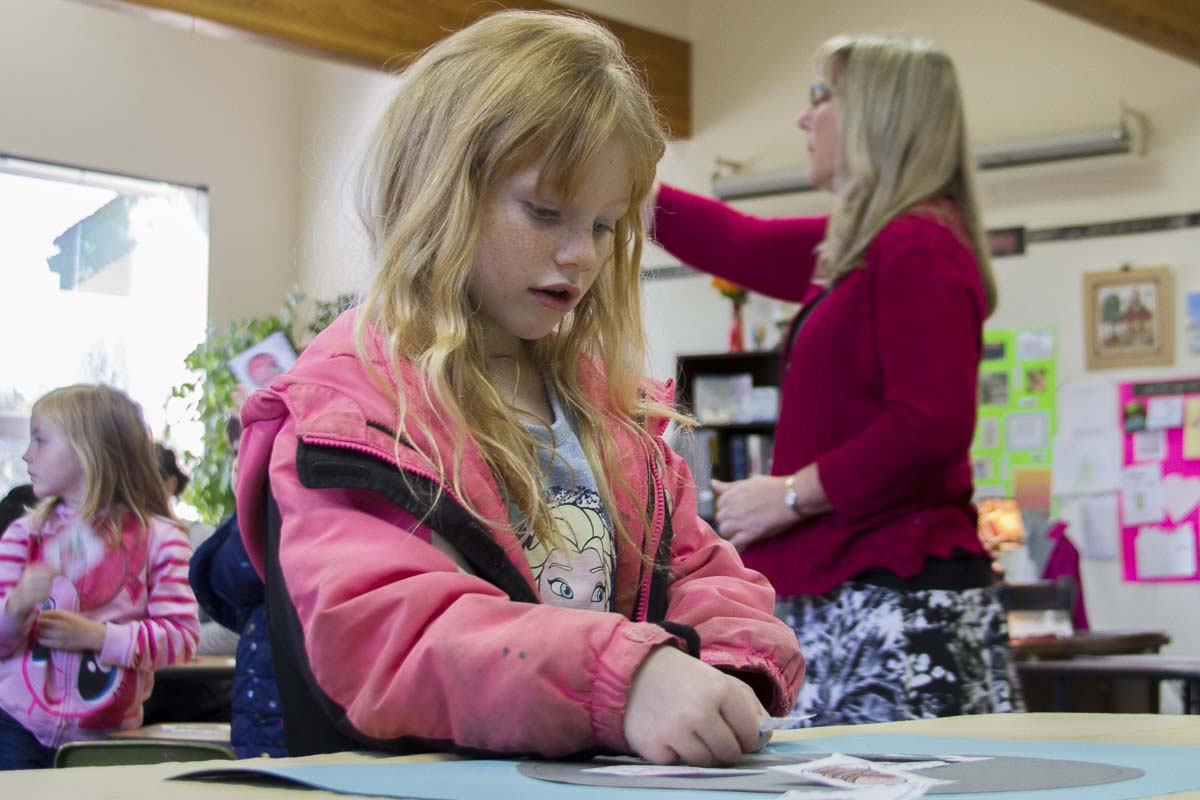The Woodland Public Schools program serving home-schooled students in grades K-8, invites guest speakers to Wednesday Workshops each week
WOODLAND — Students in Woodland Public Schools’ Lewis River Academy learn more about the subjects they study from special workshops featuring guest lecturers who specialize in using in-class material for their careers and professions.

Lewis River Academy (LRA), a Woodland Public Schools program serving home-schooled students in grades K-8, invites guest speakers to Wednesday Workshops each week where students learn about science, art, math, and a variety of other curricula from experts in the material.
“We like to seek out a variety of presenters to come and give lessons depending on the units we’re covering in class,” said Teri Retter, LRA’s K-5 teacher. “This year, we’re working on life sciences so we wanted to bring in a nutrition expert.”
LRA offers an alternative learning environment for students who want to participate in a different approach to learning using a combination of in-class curriculum and home-schooling.

“The mission and vision of LRA is to be an extension for our homeschooling students by offering online and in-person alternatives to traditional school,” explained Jake Hall, the district’s executive director of Learning Supports and Alternatives who also serves as the program’s principal.
Although optional for LRA students, the Wednesday Workshops typically draw in a majority of the enrolled students as well as their families.
“We usually have a great turnout as our students, parents, and siblings enjoy learning about different topics from our guest speakers,” said Retter. “We particularly enjoy having parents attend as they are our learning coaches; by experiencing the curriculum first-hand in the classroom, they’re better-prepared to use it out of the classroom, too.”
Laura Perry manages the Nutrition Services staff for Woodland Public Schools and was delighted to be invited as a guest speaker for a recent Wednesday Workshop.
“While working in school food service, educating students about the importance of good nutrition and healthy diets is one of our top priorities,” she explained. “In addition to guest lectures, Woodland’s food services program holds a variety of other teaching experiences during the year including Chefs in the Classroom visits, our Fine Dining Event, and the Future Chefs of America competition.”

At the beginning of the Wednesday Workshop, students selected from a variety of cut-out pictures of different fruits, vegetables, meats, and dairy products to color. Retter and Annika Dukes, the program’s teacher for students in grades 6-8, guided the students through different types of foods, teaching them what makes certain foods nutritious and others, like those high in sugar, not as healthy.
Students used the foods they colored to create meals according to the guidelines provided by the USDA’s ChooseMyPlate model; a model which uses a plate broken up into sections with different recommended quantities of fruits, grains, vegetables, protein, and dairy each person should consume on a daily basis. Students identified the category each of their foods fit into and worked as a class, helping one another pick which of their foods might fit together to make a good meal.
Then, Perry brought in a wide selection of fresh and powdered herbs and spices for students to smell and explore. While students took turns seeing the differences between the herbs and spices, Perry educated them on the history of many popular ingredients like garlic.
“Although garlic is used in cuisine from around the world, 2/3 of the world’s garlic is grown in China each year,” she said. “Garlic is one of my all-time favorites because you can use it in almost any kind of dish.”
In addition to garlic, students explored both fresh and powdered versions of dill, parsley, lavender, rosemary, sage, thyme, cilantro, oregano, and a selection of different mint to discover their similarities and differences.
“Believe it or not, oregano wasn’t popular in the United States until after soldiers brought it home from overseas following World War 2,” taught Perry. “Oregano is another herb that goes well with pretty much everything.”
In addition to handouts featuring trivia and tips about herbs and spices along with their most common uses, Perry also gave students a seasonality chart so they could learn which herbs grow best at different times of the year in Washington. Each student also took home a specially-prepared take-home “herb bouquet” including each of the herbs and spices they learned about during class.
Not only did the students enjoy their guest workshop on nutrition, the teachers were impressed, too.
“This was such a perfect lesson to demystify herbs and help teach students how to use them at home,” said Dukes. “The hands-on learning was particularly effective with students seeing, smelling, and even tasting their herbs and spices at home with their families.”
Retter agreed, “We look forward to having one of Laura’s Cooks in the Classroom workshops in the near future, too!”
More information about Lewis River Academy (LRA)
Community members and parents interested in volunteering at Lewis River Academy can contact Principal Jake Hall at hallj@woodlandschools.org or Sherri Franke, the school secretary, at frankes@woodlandschools.org.
Students and families interested in enrolling in LRA should contact Hall. Interested students and their parents will meet with Hall to discuss how LRA works and whether the program fits the family’s interests and approaches to their student’s learning. “We want to determine that the LRA program is a good fit for the students and families during the intake overview,” explained Hall. “If LRA is the right fit, the student can enroll and get started right away.”
For more information about Lewis River Academy, visit the Lewis River Academy website at www.lewisriveracademy.org or find out more through the Woodland Public Schools website at www.woodlandschools.org.
For more information about the ChooseMyPlate model, visit the USDA’s website at www.choosemyplate.gov
Information provided by Woodland Public Schools.




